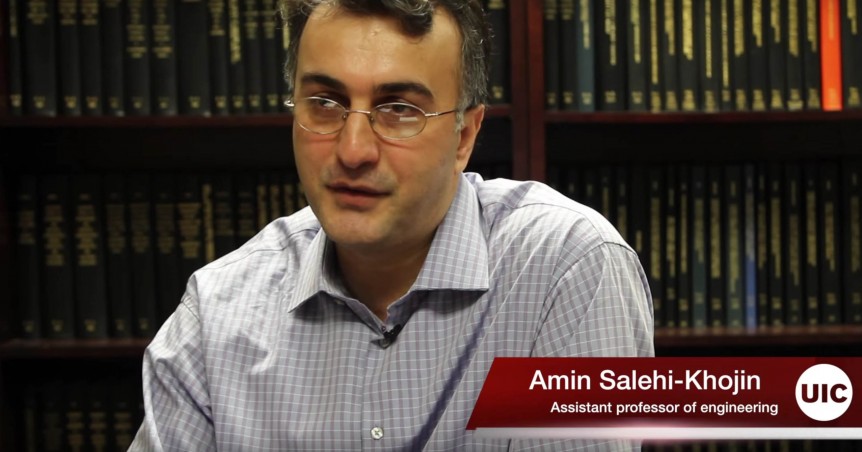Polyplus, a Berkeley, California-based battery developer, has teamed with SK, Korea’s” first and largest energy and chemical company,“ to produce and test prototype cells to demonstrate increased volumetric and gravimetric energy density and cycle life relative to existing Li-ion cells.” Just reported, “The PolyPlus lithium-water battery has achieved the highest recorded energy density of 1,300 Watt-hours/kilogram, or an almost 10x improvement* over current lithium-ion batteries. Polyplus projects the energy density for commercial lithium-air batteries to be 1000 watt-hours per kilogram.” As with many recent partnerships, the alliance between Polyplus and SK provides “muscle” for the smaller partner. Polyplus, with 18 bay area employees, will benefit from the far more sizable SK’s financial and managerial expertise. Between the two firms Polyplus’ 135 issued and 40 pending patents should receive proper support. According to Green Car Congress, “SK selected PolyPlus as partner for its global consortium.” The collaboration is focused on PolyPlus’ solid-state lithium anode laminate that has the potential to double the …
Superoxides May Be New Super Materials for Batteries
A significantly large and geographically diverse group of researchers has invested a large amount of time and intellectual capital investigating superoxides, an innovative way to keep lithium-air batteries refreshed and ready for more. Groups at Argonne National Laboratory, the University of Illinois at Chicago, Hanyang University in Seoul, South Korea; the University of Utah and the University of Kentucky all contributed to the ongoing project. While still serving as U. S. Secretary of Energy, Steven Chu called on academia and industry to develop a battery five times as powerful as then available lithium cells, at one-fifth the cost of then current batteries. We may not have arrived at that ambitious goal yet, but Argonne and UIC see a possible breakthrough in making lithium-air batteries – theoretically the most energetic of lithium chemistries – into long-lasting, energy-dense energy storage units. So far, lithium air batteries have a limiting weakness, the use of lithium peroxide, something that ends up being “an insoluble …
Cambridge’s “Ultimate” Battery? Wait 10 Years and See
Cambridge University researchers claim to have successfully demonstrated how several of the problems impeding the practical development of the so-called “ultimate” battery, in this case a lithium-oxygen unit, could be overcome. They make some pretty impressive claims, saying they’ve developed a working laboratory demonstrator with “very high” energy density – comparable to that of gasoline and with greater than 90-percent efficiency, and the ability to be recharged more than 2,000 times, or 5-1/2 years with a complete cycle and recharge every day. A lithium-oxygen or lithium-air battery of this type would allow an uninterrupted drive between London and Edinburgh on a single charge, about 415 miles, over 100 miles greater than the top mileages promised by Tesla and GM at this point. Researchers add the promise of one-fifth the cost and one-fifth the weight of currently available batteries – a touchstone for electric aircraft designers, and close to the goals U. S. Energy Secretary Steven Chu asked for three years …
Battery Prices and Lithium Futures
EV World has a weekly email update to which your editor subscribes. Because they provide a collection of articles and opinions from different sources, one often comes away questioning trends and even facts – or sometimes the meaning of it all. This week, an article referenced from Green Car Reports says that EV batteries may already have fallen to $250 per kilowatt hour. This would be a godsend for sales of battery-powered cars, because sticker prices would drop sharply. The article quotes Wolfgang Bernhart, a partner at Rolan Berger Strategy Consultants, that battery prices are already much lower than previous predictions would have indicated, possibly as low as $250 per kilowatt hour. His analysis credited economies of scale for this drop, which is based on 2015 demand. This paradoxical approach notes that battery manufacturers must begin planning production now for 2015 EVs, with prices quoted to those manufacturers based on that future demand. Such prices would be an optimistic five …
The Sixth Annual Electric Aircraft Symposium
The CAFE Foundation will hold its sixth Electric Aircraft Symposium on April 27 and 28, 2012 at the Flamingo Resort in Santa Rosa, California and at the Charles M. Schulz Sonoma County Airport, site of the Green Flight Challenge. Not only will there be a stellar lineup of speakers, but flying demonstrations of electric and hybrid aircraft, a first at any EAS. Jack Langelaan, team leader for the GFC-winning Electro Taurus G4 team, and Tine Tomazic from Pipistrel will share insights on the design and flight of the 403.5 epmpg aircraft. David Calley, Chief Technical Officer for Motor Excellence, will describe ideal low-RPM motors for electric aircraft, and Mark Moore from NASA’s Langley Research Center will share breakthroughs in distributed propulsion. And that’s all before the first coffee break! Typical of the packed schedules for all EAS’s, the rest of the presentations will fill your brain and lighten your spirit. Gene Sheehan will discuss his Quickie-like Feuling Green Flight Challenger …
Big Blue and Blue Sky Thinking
Would a 500-mile electric vehicle battery interest you? IBM, not normally thought of as a purveyor of electric vehicles, is backing a large-scale push from their Almaden Laboratory in San Jose, California, using the lithium-air battery demonstrated by recent experiments at the University of St. Andrews in Scotland, and the Universities of Strathclyde and Newcastle as a basis for their research. IBM is teaming with UC Berkeley and all five National Laboratories as part of Big Blue’s Big Green Innovations program. Initially launched as a means of reducing the 98 percent of carbon emissions from non-information technology related activities and the two percent from IT activities, the Big Green Initiative took a turn in the last several months toward the development of a 500-mile battery for electric vehicles. According to IBM, “The 500 mile battery program’s goal “is to catalyze long-term, concerted efforts to create rechargeable next-generation batteries with ten times higher energy density, compared to the best current Lithium-ion batteries.” “While scalable energy storage …



